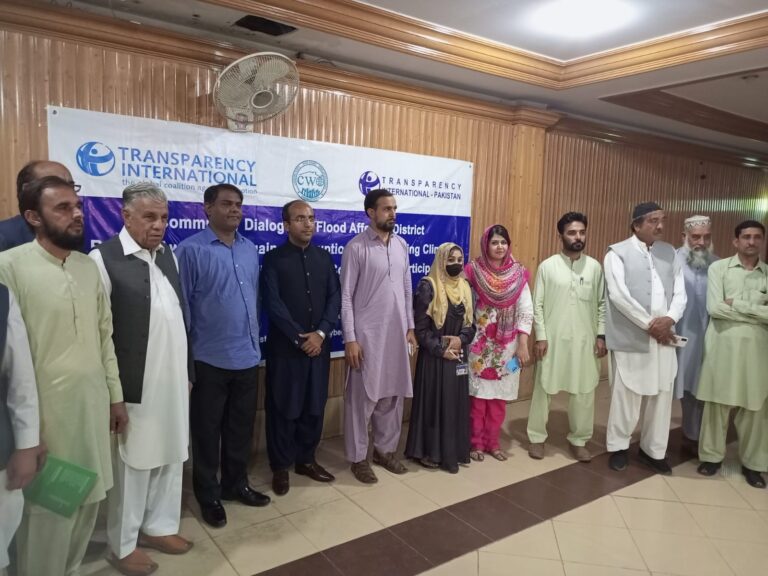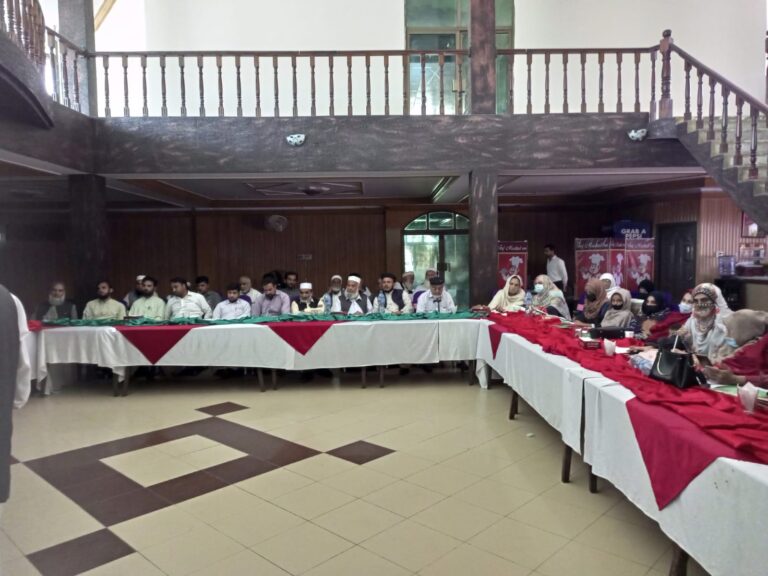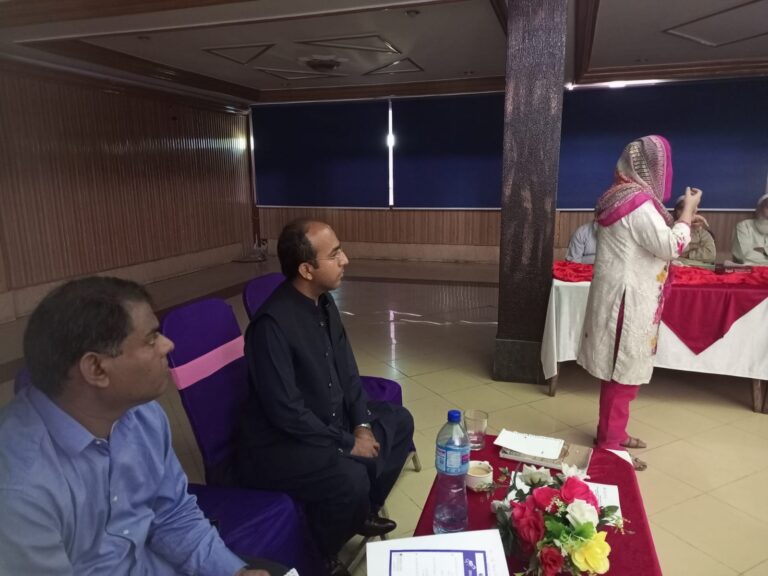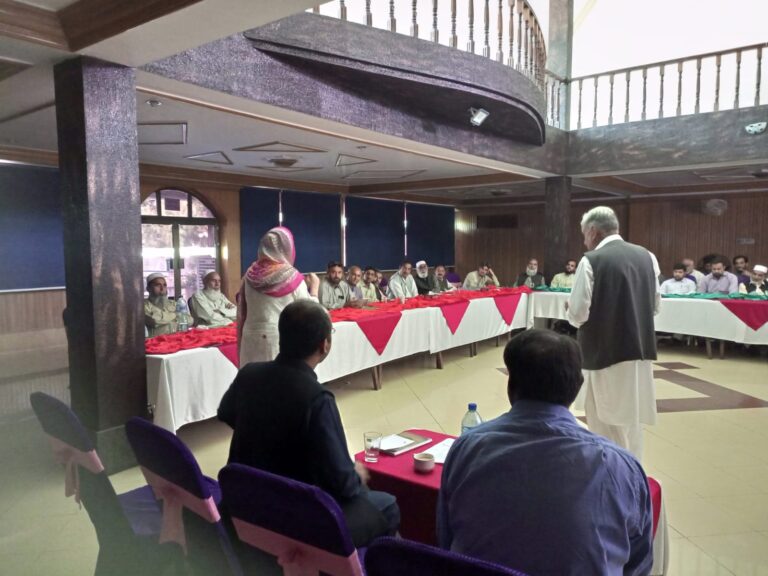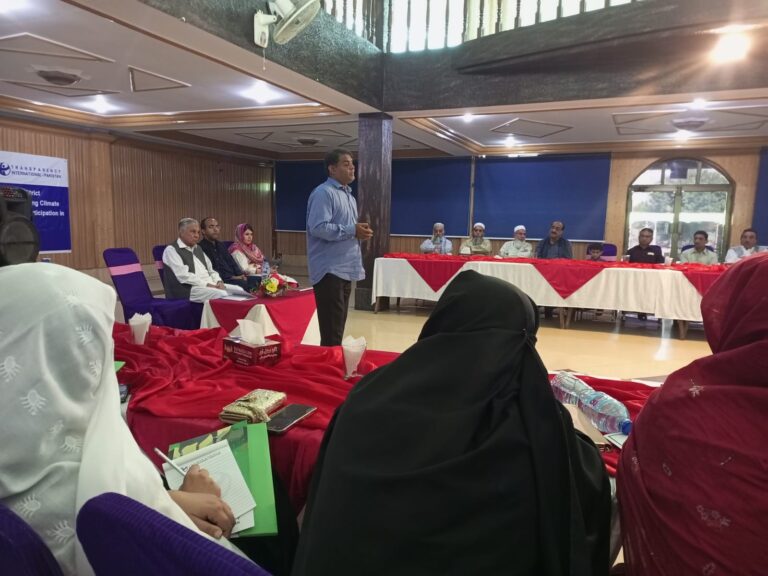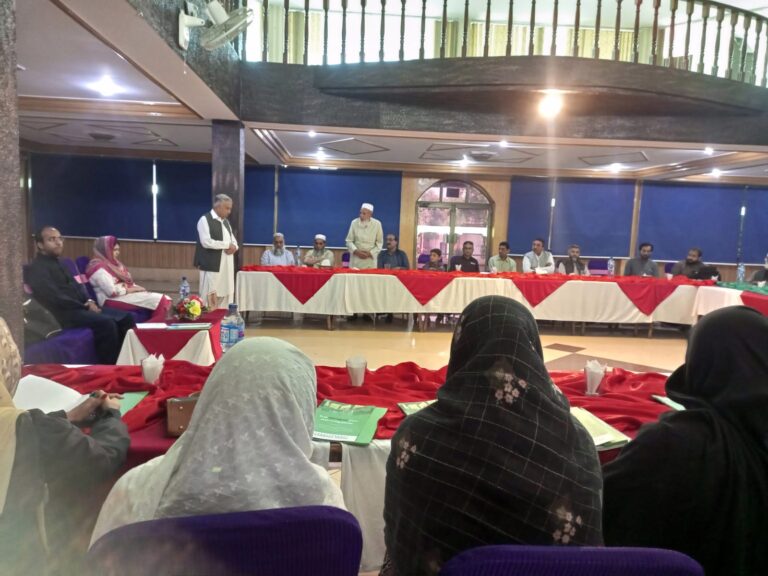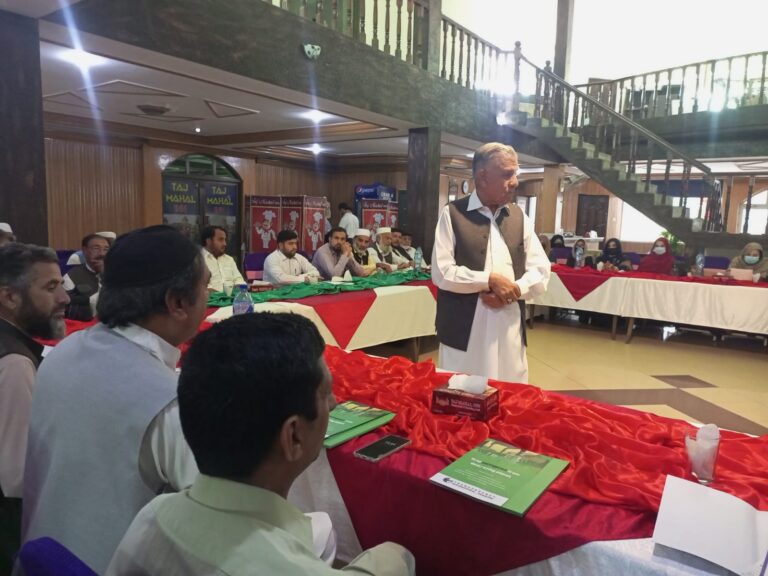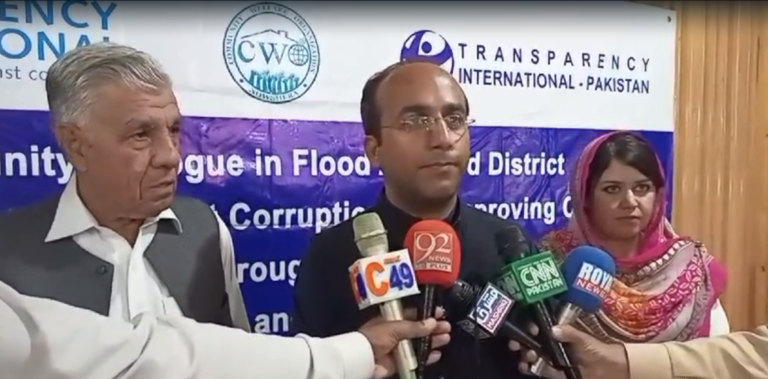- Home
- Community Dialogue in Climate Vulnerable District: Raising Awareness Against Corruption and Improving Climate Governance Accountability
Community Dialogue in Climate Vulnerable District: Raising Awareness Against Corruption and Improving Climate Governance Accountability
Community Dialogue in Climate Vulnerable District: Raising Awareness Against Corruption and Improving Climate Governance Accountability
Venue: Taj Mahal Inn Hotel, District Nowshera, Khyber Pakhtunkhwa
Date: Thursday, 26 October 2023
Transparency Intentional Pakistan organized a Community Dialogue in climate vulnerable district to raise awareness against environmental corruption among the marginalized communities to enhance citizen’s participation in climate decision-making and planning. The open dialogue took place on 26th October 2023 at Taj Mahal Inn Hotel, District Nowshera, Khyber Pakhtunkhwa. Around 51 participants including 19 females belonging to different communities from affected tehsils of District Nowshera attended the dialogue. The community dialogue was also attended by the representatives of the district administration.
The dialogue formally started with the recitation of the Holy Quran. After which a round of introduction was carried out by Mr. Kachkol Khan Khattak, CEO of Community Welfare Organization Nowshera. He welcomed the participants and emphasized the importance of community participation in advocating for improved climate governance at provincial and local level.
Mr. Kasif Ali Shaikh, Executive Director Transparency International Pakistan gave an overview of TI Pakistan “Strengthening Integrity and Inclusiveness in Climate Governance in Pakistan” program and highlighted that the objective of the community dialogue is to engage communities in calamity hit districts to empower them with the social accountability tools to monitor and report environmental corruption, enhance their awareness about provincial climate policies and the ways through which women, youth, local and marginalized communities can ensure their participation in climate planning.
He highlighted that there is a need to establish vigilance committees that can ensure an effective and efficient implementation of climate related projects with the consultation of youth, women, persons with disabilities and transgender communities in District Nowshera. The vigilance committees must be autonomous and responsible to ensure the budget transparency and accountability mechanisms from planning phase to the completion of every project.
Afterwards, Mr. Tofique Wassan, Project Coordinator, Transparency International Pakistan spoke on the effects of Climate change on Nowshera and gendered vulnerabilities. He highlighted that Nowshera was more vulnerable to floods compared to Charsadda or any other district of KP. He said that climate change-related disasters such as riverine floods, storm water, glacier bursting and heat strokes are expected to become more common in the coming years in Nowshera.
While speaking on the gendered vulnerabilities, he said that according to UN, women are 14 times more likely to die during a natural disaster than men. 70% of the world population living in conditions of poverty are women which can worsen due to effects of climate change. In disasters women face issues like displacement from their native place to relief camps where they do not have minimum facilities to survive with their children and family.
Afterwards Ms. Qandeel Rehman, co-founder of Solar For Her and an Acumen fellow conducted a session on Community Led Climate Action and KP Climate Change Policy 2022. She said that community-led action is crucial for local eempowerment, ggrassroots innovation, ccollective impact, rresilience bbuilding and ssustainable ddevelopment.
She said that KP climate change policy 2022 emphasizes climate action, however, evaluation and monitoring through community-led climate action is important. She also highlighted the multiple barriers and challenges for community-led climate action which can be tackled through accurate measures by government as well as community.
Moving on, participants were invited for an interactive and experience sharing discussion on situation during 2022 floods which caused heavy damages as well as lose of livelihood, agricultural crops and to share experiences of humanitarian assistance received from provincial and federal government.
Mr Dil Nawaz Khan, member of local village council Nowshera said there is need to engage with the elected members of local government to address the disaster situation but unfortunately our provincial and national level authorities are not taking keen interest to strengthen the local councils. In KP there is comparatively better local government system but that need more financial autonomy and authority to address the issues at grass root level.
A female community member, Ms. Sadaqat Bibi pointed out the the occupancy of educational institutions during the flood situation 2022, it took more than 6 months to resume the educational activities at institutional level. She proposed that the district administration must put in place evacuation and settlement plan to deal with climate induced disasters.
Afterwards, Mr. Abdul Bari, Chairman Union Council 4 Nowshera City spoke on institutional response during disasters & public consultations. He talked about the efforts of Provincial Disaster Management Authority (PDMA) and rehabilitation department for the rebuilding of partially and fully damaged schools, hospitals and houses. He said that there is need to ensure the quality of services so the vulnerable communities can survive in any other calamity.
Afterwards, Mr. Taufeeq Wassan, Project Coordinator TI Pakistan spoke on Social Accountability Tools for preventing environmental crimes and citizen participation in decision making. He said that social accountability tools play a crucial role in preventing environmental crimes and fostering citizen participation in decision-making processes. These tools, ranging from online platforms to community-based initiatives, open budgeting, whistle blower protection, finance dashboards, and using Right to Information laws, empower individuals to monitor and report environmental violations, holding both authorities and businesses accountable. He emphasized that the citizen engagement in decision-making is imperative for a more transparent and inclusive governance, and urged the district administration to involve communities as per KP Climate Change Policy 2022.
Mr. Wassan also provided an overview of Advocacy and Legal Advice Centre of TI Pakistan. He said TI Pakistan encourages the communities to identify and report the corrupt practices at grass root level, to the Advocacy and Legal Advice Centre. TI Pakistan regularly writes to the relevant officials to take notice and address the complaints of the citizens. He also emphasized on the KP Right to Information Act 2013 and urged community members to use RTI to provide oversight to climate related projects in the districts. He told the participants that every citizen has right to access information. He briefly explained about RTI application process, functions, and responsibility of KP Information Commission.
Towards the end, Mr. Kashif Ali, ED TI Pakistan thanked Community Welfare Organization Nowshera, District administration and the participants from different communities for their participation in the community dialogue on climate change.


